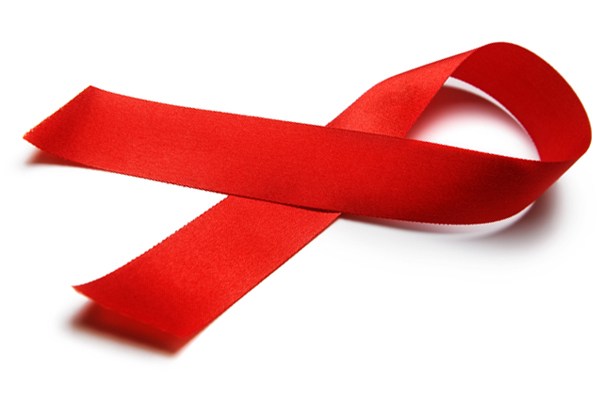By Rasak Musbau
It is likely that we will never agree on exactly where, when and how HIV came into being. Though researchers now think HIV has been around since the 1940s, perhaps as far back as 1900, it came into world consciousness in 1981 through the United States Centre for Disease Control and Prevention (CDC).
In Nigeria, the stage for awareness about HIV/AIDS and ensuing efforts at combating it was set by late Professor Olikoye Ransome- Kuti when in 1986 as Minister of Health; he announced the discovery of a 13 year old girl suffering from the disease and began to openly address issues of stigmatization and the need for sexual responsibility.
Right now, we have passed the stage of conjecture. We know from experience that AIDS can knock decades off national development, widen the gulf between rich and poor nations and push already-stigmatized groups closer to the margins of society. Unlike time when the affliction of HIV/AIDS was considered by many as the Western World’s burden, the concern of everyone today is not just about fighting the virus but the best way to end the killer disease.
According to the United Nations Programme on HIV/AIDS, there were almost 37 million people around the world living with HIV/AIDS in 2014. Of this figure, Nigeria has 3, 200,000 people living with the disease placing us as country with the second-largest number of people living with HIV behind South Africa.
The HIV epidemic in Nigeria is complex and varies widely by region. In some states, it is more concentrated and driven by high risk behaviors, while other states have more generalized epidemics that are sustained primarily by multiple sexual partnerships in general population.

Today, irrespective of whatever might have responsible for it spread, the major concern, of course, is how to end the deadly infection. World AIDS Day which comes up every December 1st is thus a perfect time to highlight the success of worldwide efforts to combat HIV/AIDS, as well as the importance of continued support for these efforts.
World AIDS Day, which has been taking place since 1988, provides an opportunity to organize an event to raise awareness of HIV, to remember loved one who have died, to show solidarity with people living with HIV, to celebrate survival and health and to also importantly weigh up adequacy or non of national investment toward ending the disease and health sector in general.
For many people the day is associated with the red ribbon, an instantly recognizable symbol. Wearing a red ribbon is deemed a simple way to show support for people living with HIV. This is good but must be backed up with a new burst of energy by everyone to end stigma, end HIV transmission and end the isolation experienced by people living with HIV, for good.
Ambitions must be expanded to specifically address many risk practices among itinerant workers, high prevalence of sexually transmitted infections (STI), clandestine high-risk heterosexual and homosexual practices, international trafficking of women, and irregular blood screening. Here, attention must be given to practice of polygamy and how it predisposes people to HIV infection.
Very importantly, we have to do more about targeting schools for HIV/AIDS education. It is our students’ right from probably primary school level to be educated about what life is like with HIV, how to protect themselves and about HIV history. They must understand that HIV means they are more likely to live in poverty, and more likely to have poor mental health. There is one British AIDS education slogan which could also be adopted in our schools. It goes thus: ‘Every time you sleep with a boy you sleep with all his old girl friends’.
Through education of the young ones, worrisome question of average Nigerians that have turned knowledge is power into knowledge is death certificate can be solved. Despite the availability of many voluntary counseling and testing services in various hospitals/centers across the country, very few know their HIV status. For instance, in Lagos, there are currently over 57 free HCT sites run by government, civil societies and the private sector. There are 29 free PMTCT (prevention of mother to child) sites, 24 free ART (Anti-retroviral therapy) sites, 6 EID (early infant diagnosis) sites in secondary and tertiary health facilities across the state.
Till date, figures on HIV in Nigeria are still one obtained through surveys of women attending antenatal clinics. Yet, only few comprehend how to assess risk to HIV with behaviour and practices that increase risk of HIV infection still rampant among our people. Persons living with HIV and AIDS require information, counseling, care and support. All these they can get and survive for longer time if their status is known on time and adhere to the needful.
In Lagos, the State Law for the Protection of persons living with HIV and AIDS was signed into law in 2007. This is in line with the views of Justice Michael Kirby of the High Court of Australia when he said: “paradoxically enough, the only way in which we can deal effectively with the rapid spread of HIV/AIDS is by respecting and protecting the rights of those already exposed to it and those most at risk”.
A vital means of ending the infection in the state is what is being done at the health facilities concerning encouraging all pregnant women to get tested for HIV and providing ARVs to all pregnant positive women. Prevention of Mother to Child Transmission (PMTCT) interventions, when properly implemented have been proven to reduce the risk of MTCT of HIV to less than 2% (from about 40% in the absence of any intervention). It is therefore obvious that one of the fundamental pillars of ending HIV would be to ensure increased uptake of PMTCT services.
Moreover, AIDS is NOT a moral issue. It is a public health problem. The vicious circle of fear, prejudice and ignorance has not and cannot help our quest to eradicate the problem. This is the time for people to stop imagining number of partners PLWHA must have slept with to be in the condition. Do we turn our back on thousands of children who are infected and are living with the virus due to circumcision by untrained health personnel? What of many who got infected through transfusion by unscreened blood? Do we also turn our back on millions of children who got infected by their positive parents? Ed Koch said: ‘if you turn your back on these people (PLWHA), you (yourself) are an animal. You may be a well-dressed animal, but you are never the less an animal’.
It is hope that with desired interest from all stakeholders, increase and expansion of interpersonal communication and community mobilization approaches at the LGA level the journey will become interesting and reaching the destination will become easier.
You helped fight HIV, now let’s end it.
Musbau is of feature unit, Lagos State Ministry of Information and Strategy, Alausa, Ikeja













